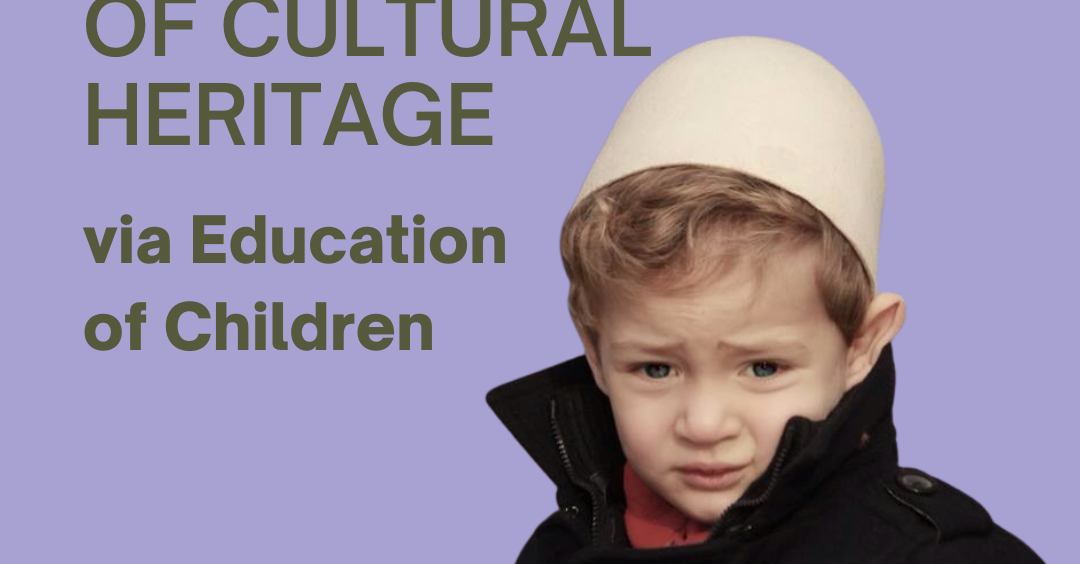Cultivating Cultural Stewardship: Educating Children for Heritage Preservation
In the decades following the war, a perceptible shift has emerged among our youth, reflecting a growing disconnection from our cultural roots. Many young people aspire to emulate Western lifestyles, often adopting elements of foreign cultures without discerning whether these align with our own traditions and values.
It is essential to recognize that Western culture, like any other, harbors valuable aspects that can enrich our own cultural tapestry. However, the challenge lies in our indiscriminate adoption of both positive and negative elements, without discernment or reflection. This phenomenon is particularly evident in the naming conventions chosen for our children, reflecting a broader societal trend towards cultural assimilation under the guise of emancipation.
As custodians of our heritage, the youth hold the key to its preservation and continuity. To this end, it is imperative that we cultivate an educational framework that instills in our children a deep appreciation for our cultural legacy and the significance of its preservation. Thus, the question arises: how can we engage our youth in the safeguarding of our cultural heritage?
Education emerges as the cornerstone of cultural transmission, offering a fertile ground for nurturing a sense of cultural identity and belonging. Recognizing this imperative, the NGO Me Dhe Për Kulturën has launched an awareness campaign aimed at empowering parents to take proactive steps in educating their children about our cultural heritage. By equipping parents with the tools and resources to impart cultural knowledge to their children, we lay the foundation for intergenerational continuity and resilience in the face of cultural erosion.
Central to this educational endeavor is the recognition that parents serve as the primary educators in their children’s lives. Through meaningful engagement and intentional dialogue, parents can instill in their children a sense of pride and responsibility towards their cultural heritage. By fostering a sense of ownership and stewardship from an early age, we empower the next generation to become active participants in the preservation and promotion of our cultural legacy, ensuring its vitality for generations to come.
Furthermore, beyond the confines of parental guidance, educational institutions play a pivotal role in shaping the cultural consciousness of our youth. Integrating cultural heritage into the formal curriculum can provide students with a deeper understanding of their roots and foster a sense of connection to their heritage. By infusing lessons with local history, traditions, and folklore, educators can inspire a sense of pride and appreciation for the rich tapestry of our cultural heritage. Moreover, extracurricular activities such as cultural festivals, heritage tours, and community outreach programs offer invaluable opportunities for students to actively engage with their cultural heritage in immersive and experiential ways.
In addition to formal education, leveraging digital platforms and multimedia resources can broaden the reach and impact of cultural education initiatives. Interactive websites, educational apps, and online repositories can serve as accessible hubs for learning about our cultural heritage, offering engaging content tailored to different age groups and learning styles. By harnessing the power of technology, we can democratize access to cultural knowledge and inspire a new generation of cultural stewards who are digitally savvy and culturally informed.
Moreover, fostering intergenerational dialogue and mentorship is essential to ensure the transmission of cultural knowledge and practices from elders to youth. Grandparents, community elders, and cultural experts possess invaluable insights and wisdom accumulated over lifetimes, which can enrich the cultural education of younger generations. Establishing mentorship programs and intergenerational workshops creates opportunities for meaningful exchanges, bridging the gap between past and present and fostering a sense of continuity in cultural traditions.
Finally, instilling a sense of cultural pride and identity in our youth requires a multifaceted approach that engages families, schools, and communities in concerted efforts. By fostering a supportive ecosystem that values and prioritizes cultural education, we can empower our youth to become active participants in the preservation and promotion of our cultural heritage. Through collective action and a shared commitment to cultural stewardship, we can ensure that our cultural legacy endures as a source of inspiration, resilience, and belonging for generations to come.


